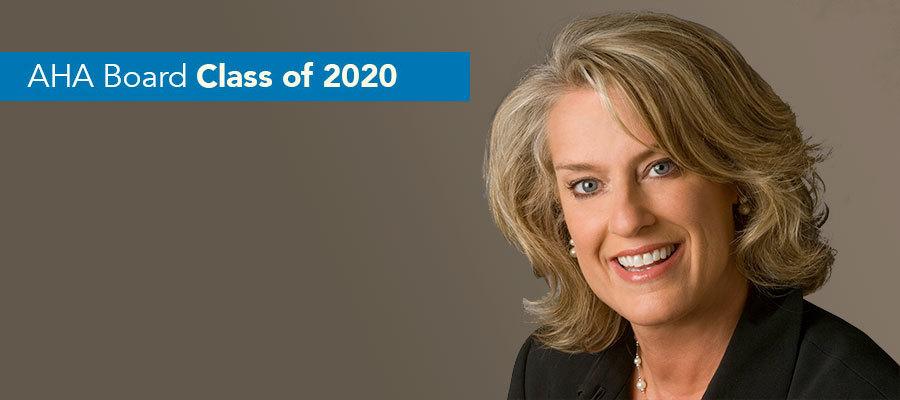Leadership is key to addressing human trafficking

The AHA, along with its nearly 5,000 member hospitals, health systems and other health care organizations, are committed to addressing all forms of violence affecting our staff as well as the patients and communities we serve. One aspect of AHA’s Hospitals Against Violence initiative is fighting human trafficking by highlighting leading practices, connecting health leaders with evidence-based interventions and protocols, and enabling greater data insights on human trafficking by successfully advocating with members for new ICD-10 codes related to assisting patients affected by human trafficking.
Claire Zangerle, RN, chief nurse executive at Allegheny Health Network and AHA Board member, has led much of AHA’s Hospitals Against Violence work on the issue. Below, Zangerle discusses how and why health leaders should prioritize human trafficking interventions in their organizations.
Q: What should health care leaders know about human trafficking? Why should it be an area of focus for their leadership teams?
A: Health care leaders must know that human trafficking exists in their communities, around the hospitals and other facilities where they provide care. Many times, victims of human trafficking come for care and are not identified as victims. Once we recognize that human trafficking exists in our organizations, it allows clinicians and others to better care for those patients, staff and others suffering from human trafficking.
Q: Increasingly, hospitals and health systems are sharing how they are addressing human trafficking. With increased awareness and engagement, how do you think that will impact hospital and health system response for victims and survivors?
A: The AHA, AONL and others have certainly elevated the cause and the issue of human trafficking, but there is more to do. It’s a public health issue — some say an epidemic — and that will impact the field’s response. I think we’ll see people increasingly look at this with data, more strategic assessments — truly with an epidemiologist lens and focus on reducing and identifying victims of human trafficking.
Q: What tools and resources can hospitals look to when educating front-line caregivers?
A: It’s very important to keep our workforce educated on the issues around human trafficking because traffickers are smart and they’re getting smarter every day. Just having a discussion about the issue and basic protocol for possible victims gets everyone on the same page for both patient care and staff safety. Further, training gives staff confidence when reaching out to possible victims that they can help and connect with the appropriate community resource. Hospitals don’t have to reinvent the wheel or create things from scratch. Both AHA and AONL have many free resources on their website — aha.org/HAV — aonl.org/combating-human-trafficking — including best practices, evidence-based interventions and national as well as community-based groups that assist victims.
Q: In terms of some of the best practices, why is it important to provide person-centered care?
A: In terms of caring for victims of human trafficking, hospital staff must prioritize person-centered care. That’s what this is all about. By focusing on the person who is suffering, we shift perspective slightly. We give them more control in their care — and remember control is something they have lost — which allows a caregiver to provide necessary care but also strengthen trust so a victim sees the opportunity to escape their situation. Person-centered care gets our patients and victims to a safer, better place.

